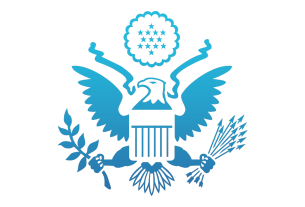The phrase “Give me your tired, your poor, your huddled masses yearning to breathe free” is inscribed on the pedestal of the Statue of Liberty, a powerful symbol of hope and freedom for many immigrants. However, as debates around immigration continue to intensify in the U.S., there is a growing disconnect in how this phrase is understood and its historical context.
Historical Context
The words were penned by poet Emma Lazarus in her sonnet “The New Colossus,” written in 1883. Lazarus crafted this poem to raise funds for the statue’s pedestal and to highlight the plight of immigrants arriving in America during a time of significant social and economic upheaval. Many were fleeing poverty, oppression, and violence in their home countries, seeking refuge and opportunity in the United States.
A Symbol of Hope
For generations, the Statue of Liberty has stood as a beacon of hope, welcoming immigrants from around the world. The phrase encapsulates the ethos of the American Dream—the idea that anyone, regardless of their background, can achieve success and find a better life through hard work and perseverance.
However, the contemporary understanding of this sentiment has become complicated. Many Americans may not fully grasp the original intention behind these words or the struggles faced by those who sought refuge on U.S. shores.
Misconceptions and Misunderstandings
In recent years, immigration has become a polarizing issue, often clouded by political rhetoric and fear-based narratives. Some may interpret “Give me your tired and weary” as a call to unrestricted immigration, failing to recognize the underlying message of compassion and support for those in need.
This misunderstanding can lead to the perpetuation of harmful stereotypes about immigrants as burdens or threats rather than individuals with unique stories, aspirations, and contributions to society. Many immigrants arrive in search of safety and stability, often enduring tremendous hardships in their journeys.
The Reality of Immigration
The reality is that immigrants have historically been integral to the fabric of American society. They contribute to the economy, enrich cultural diversity, and fill critical roles in various sectors. Research from the American Immigration Council shows that immigrants contribute significantly to the workforce and pay billions in taxes, underscoring their role as valuable members of society.
A Call for Empathy and Understanding
To truly honor the sentiment behind “Give me your tired and weary,” Americans must strive for a deeper understanding of immigration. This means recognizing the humanity in each individual’s story and acknowledging the courage it takes to leave one’s home in search of a better life.
Promoting empathy involves listening to the experiences of immigrants and understanding the systemic challenges they face. It also means advocating for policies that reflect compassion and support rather than exclusion.
Conclusion
The phrase “Give me your tired and weary” is more than just an inscription; it is a reminder of America’s foundational values of hope, opportunity, and compassion. By fostering a deeper understanding of this sentiment, Americans can work towards a more inclusive society that honors the sacrifices and aspirations of immigrants. In doing so, we can begin to bridge the gap between rhetoric and reality, ensuring that the ideals of freedom and opportunity are accessible to all who seek them.



